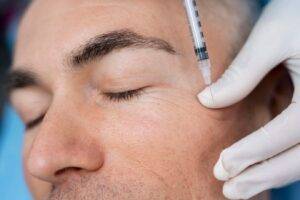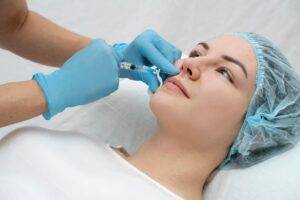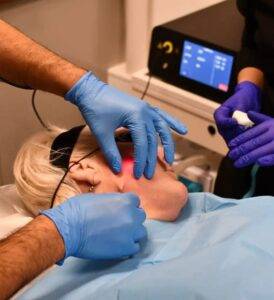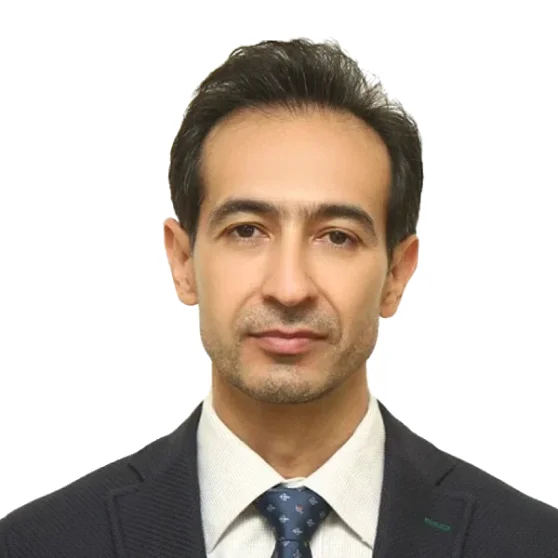Book an appointment
What is Gynecomastia?
Gynecomastia is a common condition in men and boys where breast gland tissues swell, resulting in a breast-like appearance in the chest. This condition can affect one or both breasts, sometimes unevenly. While it’s generally not a serious problem, it can lead to psychological distress and self-esteem issues.
Gynecomastia can occur at any age, and it’s typically the result of hormonal changes, obesity, genetics, or the use of certain drugs. At Newsense Clinic in Dubai, we understand how significantly this condition can impact your life, which is why we offer specialized Gynecomastia treatment in Dubai to help you regain your confidence.


What are the causes of Gynecomastia?
Gynecomastia is caused by an imbalance between the hormones estrogen and testosterone in the body, which leads to the growth of breast tissue in males. Several factors can contribute to this hormonal imbalance and the subsequent development of gynecomastia:
- Hormonal Changes: Normal changes in hormone levels, particularly during puberty, can temporarily lead to gynecomastia. Hormone fluctuations are also common in older men, contributing to the condition.
- Medications: Various medications can influence hormone levels and promote breast tissue growth. These include:
- Anti-androgens used to treat prostate enlargement or cancer (e.g., finasteride, flutamide).
- Anabolic steroids and androgens.
- HIV medications, particularly those that are protease inhibitors.
- Anti-anxiety medications
- Tricyclic antidepressants.
- Antibiotics.
- Ulcer medications
- Medical Conditions: Several health conditions can lead to gynecomastia by affecting hormonal balance:
- Hypogonadism conditions like Klinefelter syndrome or pituitary insufficiency can be associated with low testosterone levels.
- Hyperthyroidism, where an overactive thyroid gland produces too much thyroxine.
- Kidney failure, especially among those receiving dialysis.
- Liver disease and cirrhosis can alter hormone metabolism and lead to gynecomastia.
- Substance Abuse: Drugs such as alcohol, amphetamines, marijuana, heroin, and methadone are known to influence hormone levels and can cause gynecomastia.
- Herbal Products: Plant oils, such as tea tree or lavender, used in shampoos, soaps, or lotions have been associated with gynecomastia due to their estrogenic activity.
- Obesity: Increased body fat can lead to higher production of estrogen, which can stimulate breast tissue growth in males.
What are the indications for a Gynecomastia Surgery?
Gynecomastia surgery, also known as male breast reduction surgery, is considered for several reasons, primarily when other treatments have not resolved the condition or when the gynecomastia is causing significant psychological distress or physical discomfort. Here are the key indications for considering gynecomastia surgery:
- Persistent Gynecomastia: If the breast enlargement persists for more than two years or does not resolve after initial treatments such as hormone therapy, surgery may be considered. Persistent gynecomastia, especially if fibrous, is less likely to respond to medical treatments alone.
- Pain and Discomfort: If the enlarged breast tissue causes pain or sensitivity, surgery may be necessary to alleviate discomfort and improve quality of life.
- Psychological Impact: Significant emotional distress, embarrassment, or self-esteem issues due to the appearance of the breasts can be a strong indication for surgery. This is especially important for adolescents and young adults, for whom the psychological impact can be particularly profound.
- Cosmetic Reasons: For many patients, the appearance of enlarged breasts can be distressing and may affect their personal and social life. Surgery can help restore a more typical masculine chest contour.
- Failure of Medical Management: If medical treatments aimed at correcting hormonal imbalances or stopping any causative drugs do not reduce breast size, surgery may be the next step.
- Physical Limitations: In some cases, large breasts may interfere with physical activities, causing men to alter their lifestyle or avoid certain exercises. Surgery can help restore full physical function.
Why Choose Newsense Clinic for Your Gynecomastia Treatment in Dubai?
At Newsense Clinic, your health and aesthetic goals are our utmost priorities. We specialize in Gynecomastia surgery in Dubai, offering:
- Expertise: Our surgeons are internationally trained and have years of experience in performing Gynecomastia surgeries with excellent outcomes.
- Personalized Care: We provide tailored treatment plans that address your specific needs and concerns, ensuring optimal results.
- State-of-the-Art Facilities: Our clinic is equipped with the latest medical technology to ensure safety, comfort, and the best possible results for our patients.
- Comprehensive Support: From initial consultation through recovery, we offer continuous support and guidance to ensure your comfort and satisfaction with the procedure.













